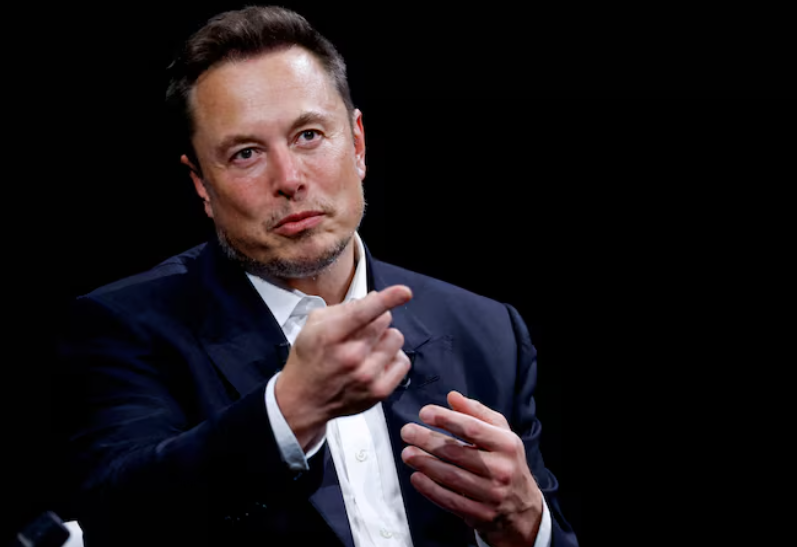A Delaware judge ruled on Monday that Tesla CEO Elon Musk is still not entitled to a $56 billion compensation package, despite Tesla shareholders voting in June to reinstate it. Chancellor Kathaleen McCormick of the Court of Chancery issued the ruling, following her January decision to rescind the pay package, calling it excessive. This ruling surprised investors and raised uncertainty about Musk’s future at Tesla, the world’s most valuable automaker.
In response to the decision, Musk posted on X, arguing that “shareholders should control company votes, not judges.” Tesla also criticized the ruling, stating that it was incorrect and that they would appeal. The company added that the judge had overruled a supermajority of shareholders. Tesla can appeal to the Delaware Supreme Court once McCormick issues a final order, which could happen as soon as this week. The appeal process may take up to a year.
Tesla argued in court that the judge should recognize the June vote by shareholders in favor of Musk’s pay package, which Tesla claims is justified by Musk’s significant contributions to the company. However, McCormick ruled that Tesla’s board could not simply “reset” the pay package. She wrote in her 101-page opinion that allowing defeated parties to create new facts to revise judgments would lead to endless lawsuits. She also stated that a ratification vote must occur before a trial, and a company cannot ratify a transaction involving a conflicted controller. McCormick had previously determined that Musk controlled the pay negotiations. Additionally, she criticized Tesla for making multiple material misstatements in its proxy statement about the vote, arguing that the vote could not justify restoring Musk’s pay package.
Following the ruling, Tesla’s stock dropped 1.4% in after-hours trading. Gary Black, managing partner of The Future Fund, which holds Tesla stock, expressed doubt that the ruling would stand, predicting that a more pragmatic court, such as the Delaware Supreme Court, would likely overturn it.
The pay package initially awarded Musk stock options contingent on Tesla achieving performance and valuation targets. Originally valued at up to $56 billion, the package is now worth about $101 billion, following a 42% surge in Tesla’s share price since Nov. 5, 2024, when Republican candidate Donald Trump, supported by Musk, won the U.S. presidential election.
The ruling comes as Musk has been tasked by Trump with overseeing the creation of a more efficient government. Musk will co-lead the informal Department of Government Efficiency, which allows him to retain his roles at Tesla and other companies like SpaceX. Musk has also become a close adviser to Trump during the campaign.
McCormick also ordered Tesla to pay $345 million in legal fees to the attorneys who brought the case. Although this was significantly less than the $6 billion the plaintiffs had initially requested, it remains one of the largest fee awards in securities litigation. The law firm representing the plaintiffs, Bernstein Litowitz Berger & Grossmann, expressed satisfaction with the ruling and signaled their readiness to defend the decision if Musk and Tesla appeal.
After McCormick’s January ruling, Tesla shareholders flooded the court with thousands of letters, arguing that rescinding Musk’s pay package would increase the risk of him leaving Tesla or focusing on ventures like artificial intelligence at other companies. Many of Musk’s supporters, including individual investors and fans, voiced their opposition to Monday’s decision on social media. Omar Qazi, who runs the popular @WholeMarsBlog account, posted that “the bigger issue here is that the voice of shareholders is being overruled.” Qazi, with over 550,000 followers, urged that the vote be considered on appeal.
In January, McCormick had found that Musk improperly influenced the 2018 board process to negotiate the pay package. The board had argued that Musk deserved the package because he had met ambitious targets on market value, revenue, and profitability. After that ruling, Musk criticized McCormick on social media and encouraged other companies to consider reincorporating in Texas instead of Delaware, although it remains unclear whether any companies followed that advice.
The 2018 pay package awarded Musk stock grants worth around 1% of Tesla’s equity each time the company achieved one of 12 escalating operational and financial goals. Musk did not receive any guaranteed salary. The plaintiffs had argued that shareholders were not properly informed about how easily these goals could be achieved when they voted on the package.

